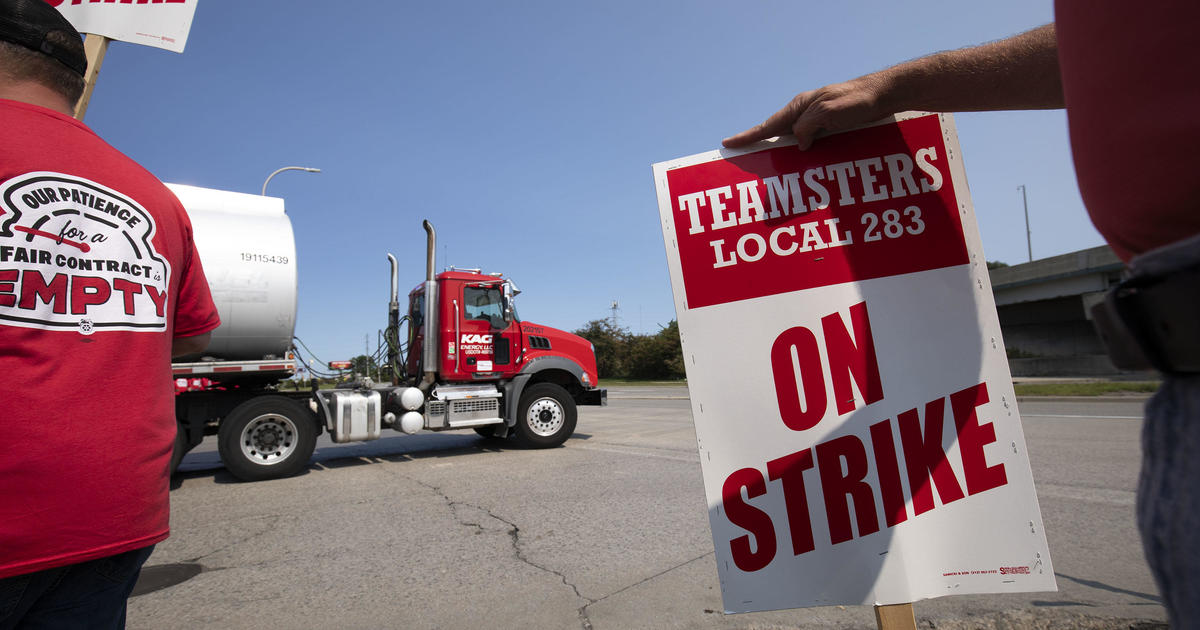The International Brotherhood of Teamsters, one of the largest unions in the United States with 1.3 million members, made headlines recently when they announced their decision not to endorse a candidate in the 2024 presidential race. This decision set them apart from the other major unions in the country, as they chose not to throw their support behind Vice President Kamala Harris.
In a statement released by the union, they explained that they had “few commitments on top Teamsters issues from either former President Donald Trump or Vice President Kamala Harris—and found no definitive support among members for either party’s nominee.” This lack of clear support from either candidate led to the Teamsters’ decision to refrain from endorsing a candidate in the upcoming election.
While the Teamsters have a history of endorsing Democratic candidates since 1996, they have not always followed this trend. For example, they endorsed George H.W. Bush in 1988, Ronald Reagan in 1980 and 1984, and Richard Nixon in 1972. This history of endorsements across party lines demonstrates the union’s willingness to support candidates based on their policies and commitments to the issues that matter most to Teamster members.
The Teamsters’ decision not to endorse a candidate in 2024 was influenced by a lack of commitment from both Trump and Harris to key union issues. Specifically, neither candidate pledged to refrain from interfering in critical union campaigns or core Teamsters industries, nor did they promise to honor members’ right to strike. This lack of support for key union priorities led the Teamsters to take a neutral stance in the presidential race.
One of the key issues that the Teamsters were looking for commitments on from the candidates was the passage of the PRO Act, which would strengthen the right to unionize. While Harris pledged to sign the PRO Act, Trump did not commit to vetoing “right to work” legislation in a potential second term. These differences in policy positions further complicated the Teamsters’ decision-making process when it came to endorsing a candidate.
Teamsters president Sean O’Brien played a pivotal role in the union’s decision-making process, initiating the first-ever roundtable interview process for the 2024 endorsement. O’Brien invited all major-party candidates to make their case for the union’s support, meeting with Trump, Biden, and later Harris. The roundtable discussions focused on Teamsters-specific issues, as well as broader legislative priorities like the PRO Act, bankruptcy reform, and antitrust measures.
Following the roundtable discussions with the candidates, the Teamsters conducted polling among their members to gauge support for each candidate. While initial polling showed a plurality of members backing Biden over Trump, subsequent polls revealed a shift in support towards Trump. This shift in support among Teamster members played a significant role in the union’s decision not to endorse a candidate in the 2024 election.
In response to the Teamsters’ decision, both the Trump campaign and Harris’s spokesperson offered their perspectives. The Trump campaign highlighted the support among rank-and-file working men and women for the former president, while Harris’s spokesperson emphasized her ties to organized labor and commitment to supporting the Teamsters’ rank-and-file members.
The Teamsters’ decision not to endorse a candidate in the 2024 presidential race reflects their commitment to prioritizing the voices and opinions of their diverse membership. While some factions within the union endorsed Harris earlier this year, O’Brien emphasized that the final decision on a potential endorsement would be driven by the union’s members.
The Teamsters’ neutrality in the 2024 presidential race could have implications in key battleground states where union membership is strong, such as Michigan, Nevada, and Pennsylvania. O’Brien’s stance on creating a bipartisan coalition to work towards real change for American workers highlights the union’s commitment to advocating for their members’ interests regardless of party affiliation.
Overall, the Teamsters’ decision not to endorse a candidate in the 2024 presidential race underscores their dedication to representing the diverse interests of their membership and prioritizing key issues that impact their members’ livelihoods. This decision reflects the union’s commitment to advocating for policies and candidates that align with their values and priorities, ensuring that the voices of their members are at the forefront of their decision-making process.









